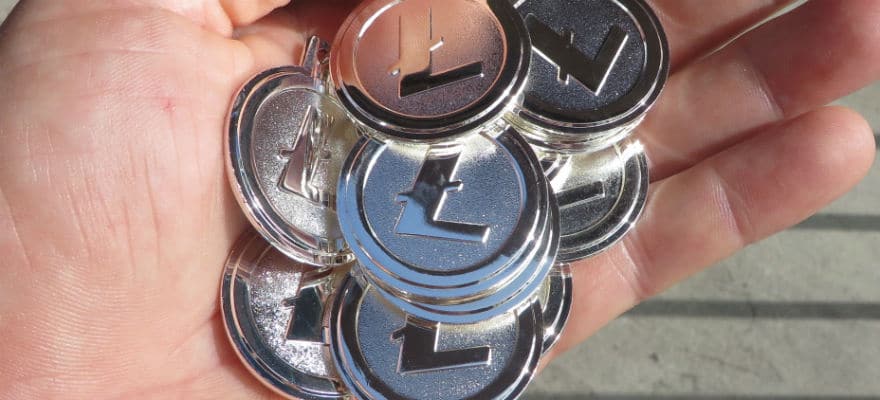Litecoin is one of the most popular Cryptocurrencies on the market. It was designed to be a lighter version of Bitcoin , which it achieves with a shorter block generation time and a larger number of maximum coins.
Although Bitcoin is almost always the first cryptocurrency to be adopted by entities that decide to get into cryptocurrency, Litecoin is usually in the second wave in cases where the offer is expanded. In short, it is a well-established cryptocurrency, and has a market capitalisation of over $8 billion.
In a streaming YouTube interview on Friday, Litecoin creator Charlie Lee discussed the issue of decentralisation in cryptocurrencies.
This is a subject that he takes seriously; in December of last year, he made the surprising move of selling all of his litecoins. He did this in order to avoid accusations of a conflict of interest. At the time he explained: “...whenever I tweet about Litecoin price or even just good or bads news, I get accused of doing it for personal benefit. Some people even think I short LTC! So in a sense, it is [a] conflict of interest for me to hold LTC and tweet about it because I have so much influence.”
He sold his coins just after Litecoin peaked in price, at $360 each. The price of Litecoin rose following the sale, which was surprising for two reasons: first, because the move could have viewed as reflecting badly on the product, and second because dumping a large number of anything onto a market will make its price drop.
At the time of the sale, he assured the community: "Don’t worry. I’m not quitting Litecoin. I will still spend all my time working on Litecoin. When Litecoin succeeds, I will still be rewarded in lots of different ways, just not directly via ownership of coins.” In Friday's interview, which was conducted by Julian Hosp of the TenX crypto wallet, Lee said: "I didn’t actually have that many litecoins. My selling litecoins didn’t actually affect the market itself but the fact that I had litecoins and people were thinking that I might dump it on the market actually was an issue."
Lee added that in his opinion there are advantages and disadvantages to decentralisation: "I think it's great that Bitcoin's creators left the scene, it made Bitcoin more decentralised. If he's [Nakamoto] around then everyone will focus on him which makes the coin more centralised - which is the case with Litecoin. Litecoin is more centralised because I'm around...I can help steer Litecoin towards my vision and people will listen to me because I created it."
"What's good about it is that we can be more efficient...the downside is if somehow governments coerced me into destroying Litecoin, that could happen - it becomes less censorship-resistant."
Hosp asked him the future of Litecoin in this regard, and Lee said: "As for the future, I think eventually I would have to step away. For a currency to really be a worldwide, decentralized currency, you can’t have a leader trying to control things. To make it more decentralized eventually I’ll step away."
In another interesting comment, Lee talked about Bitcoin Cash, which is another fork of Bitcoin. He said that Bitcoin Cash is very similar to Litecoin in that the fees are lower than Bitcoin and it is faster, "the only difference is with Bitcoin Cash is that it wants to kind of replace Bitcoin. It basically wants to be a better Bitcoin but it's having a hard time doing that...I think it's the wrong approach to try to be attacking Bitcoin's brand."


















